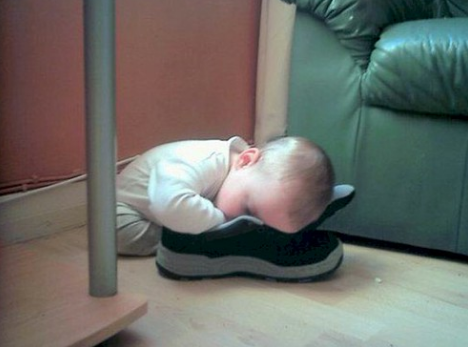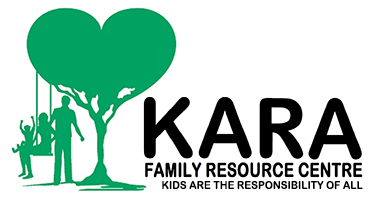
Two days before I was due, still looking like I swallowed a beach ball, my midwife gave me a piece of advice. She started off a friendly chat themed around my readiness to be a parent.
“How are you feeling emotionally,”
“When will you stop working,”
“Do you have everything you need for the baby,”
That sort of thing.
What she was leading up to was how I was going to handle the giant life curveball that is parenthood and what my expectations were. I was so excited and ready to be a mom, and was so certain I had everything under control, that I didn’t take much away from the conversation other than, “Babies don’t know when you haven’t showered.”
What Baby Books Don’t Let On
What my midwife was getting at were some of the realities that the mom-to-be books don’t cover. Plenty of parenting books I read were how to do all of the parenting things – and how to do them perfectly. They didn’t embellish on how I was supposed to find time, money, or energy to do them.
I’ll be honest, one baby wasn’t as much of a time vacuum in the hygiene department as my midwife let on, but adding his little brother forced me to come up with alternatives to some things I had taken for granted. Furthermore, it wasn’t until I was pregnant with a third that I actually researched how children changed my life (I certainly felt the change, but didn’t read material on it).
What to Expect After Expecting
Here are a few topics that I took notice of after the whirlwind that are the few months (and few years) after having a child: lack of sleep (so much so that my doctor thought I was anemic!); declining personal hygiene (it caught up with me and I eventually had to start wash-training my hair); irrational outbursts (probably due to the lack of sleep and not helped by the crazy Game of Thrones hair); trouble articulating (a no‑brainer with a pun intended!), a loud and messy household (especially if you have older children that are really into helping you “cook”); a car to be embarrassed about (old baby snacks have actually melted to my clothes without me noticing more than once); never-ending laundry (hooray for potty training?); gourmet chef to frozen dinner surprise (sometimes still partly frozen); parents turning from parents into grandparents overnight (green veggies are history at my parents’ house and my kids get presents every other week); and my social life started resembling Cast Away (without Tom Hanks so it was a real bummer).
With all of this going on, only Captain Marvel would be able to replicate the perfect parenting strategies I’ve read so many times in parenting books.
FYI – If you don’t know who Captain Marvel is, I was in the same boat until I had to exchange my son’s birthday gift after he told me it was for girls! I must have missed Parenting Failure 101 class the day they lectured on female superheroes!
Parenting Failures Can Benefit Kids
At the end of the day (even if it’s an extremely long and exhausting day), parenting failures like forgetting to buy something your child needed or dropping them off late to a play date, will not affect your children. In fact, according to some parenting experts, some flaws can actually benefit children.
A fixed-mindset empowered by constant praise doesn’t foster room for growth (click here). While it seems logical to protect a child from failure, because it is an unpleasant experience, by doing this, you may be hindering a child’s ability to cope and learn from consequences (click here).
When you have a small outburst or make a terrible meal, you’re sending the message that you aren’t perfect, but that you are still trying and resilient. Seeing this, a child knows that mistakes aren’t the end of the world and, by watching you, will know what the correct steps are after making a mistake.
Bouncing Back from Parenting Failures
I once stumbled across a parenting failure on social media. It was titled Toddler Discovers Flour Power.
You probably don’t need to see the photos to envision how dearly that parent paid for their hilarious mistake. Bouncing back from minor, relatable parenting failures is easy though, and it can help your child learn how to cope and be resilient. Here’s how:
- Acknowledge the Mistake – even if you are just saying “oops” to yourself in your own head, be sure to admit and accept it was a mistake.
- Think Positive – don’t beat yourself up, pick yourself up! Remember, you’re only human (not Captain Marvel that looks remarkably like Captain America – ugh). Everyone makes mistakes and, encouragingly, you can use your mistake to benefit your child.
- A Teachable Moment – use the mistake to teach your child. Tell them what the mistake was and how you’re going to sharpen your parenting skills to avoid it in the future. If your child is too young to talk to, say it anyway; it will likely make you feel better.
- Apologize – especially if it was an outburst. There have been a few moments in my house where the noise volume got out of hand or mommy didn’t want to share her phone and the result was an apology. Letting the kids know I lost my cool and didn’t mean to have an outburst really helped my kids learn the importance of apologies.
- Get Support – seek and find the support you need if you need someone to talk to. Social media and the stranger behind you in the grocery store can be quite cruel to your emotional well-being. Talk to a good friend or relative. Also, KARA’s newest program, Kids Have Stress Too!, can be the place to find a good confidant and learn a thing or two about how to help kids manage mistakes and stress!
- Create a Plan – learn from your mistakes and develop a plan to become the parent you want to be! Prep for outings the night before, use child locks on the flour container, put the camera down and catch your child, research superhero attire before purchasing it, and above all, maintain a sense of humour!
In Conclusion
“Everyone knows how to raise children, except the people who have them.” – P.J. O’Rourke
If I’ve learned anything, it’s that being the perfect parent is impossible and isn’t beneficial. It’s being the perfect role model that is attainable and valuable. We’re going to mess up, everyone does, and if we didn’t, we wouldn’t be doing our children any favours. Learning to grow from failures is an important life skill, and learning to take responsibility and rise up afterwards, well they learn that from us!
